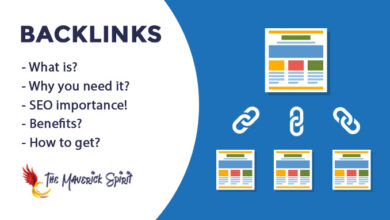The Journey of Conscious Uncoupling: Finding Freedom and Fulfillment

In the realm of relationships, the concept of uncoupling has undergone a profound transformation in recent years. No longer just a synonym for divorce or separation, uncoupling has evolved into a process of conscious and intentional separation, aimed at fostering personal growth, mutual respect, and emotional well-being.
This paradigm shift has given rise to the concept of “conscious uncoupling,” a journey that offers individuals the opportunity to find freedom and fulfillment even amid relationship dissolution.
Rethinking Separation: The Rise of Conscious Uncoupling
Conscious uncoupling represents a departure from the traditional narratives surrounding separation. Instead of viewing the end of a relationship as a failure or defeat, visit REBEL LOVE as a conscious choice made with awareness and intention.
Coined by Katherine Woodward Thomas, the term gained widespread recognition after actress Gwyneth Paltrow and musician Chris Martin famously announced their decision to “consciously uncouple” in 2014. Since then, it has become synonymous with a more enlightened approach to separation—one that prioritizes personal growth, mutual respect, and emotional healing.
Embracing the Journey: Navigating Conscious Uncoupling
The journey of conscious uncoupling is not without its challenges, but it offers profound opportunities for growth and transformation. At its core, conscious uncoupling is about navigating the end of a relationship with grace, compassion, and mindfulness.
It involves acknowledging and processing emotions, communicating openly and honestly with your partner, and making decisions that honor both your individual needs and the well-being of any children involved.
Finding Freedom: Liberating Yourself from Attachment
Central to the process of conscious uncoupling is the idea of releasing attachment—to the relationship, to the past, and to the expectations we hold for the future. By letting go of attachment, individuals free themselves from the constraints of resentment, bitterness, and regret, allowing space for healing and growth to occur.
This process of liberation opens the door to new possibilities and opportunities for self-discovery, empowerment, and fulfillment.
Cultivating Compassion: Honoring the Human Experience
Conscious uncoupling invites individuals to approach the end of a relationship with compassion and empathy—for themselves, for their partner, and for the shared journey they have embarked upon together.
It involves acknowledging the humanity in each other, recognizing the inherent worth and dignity of both parties, and holding space for the full spectrum of emotions that arise during the process of separation.
Embracing New Beginnings: Nurturing Growth and Fulfillment
While the end of a relationship may signal the closing of one chapter, it also marks the beginning of a new journey—one filled with potential, possibility, and opportunity.
Conscious uncoupling encourages individuals to embrace this transition with openness and curiosity, viewing it as an opportunity for self-exploration, reinvention, and personal evolution. By nurturing their own growth and fulfillment, individuals can create a future that is rich, meaningful, and aligned with their deepest desires and aspirations.
Conclusion
The journey of conscious uncoupling is a testament to the resilience of the human spirit and the transformative power of intentional living. It offers individuals the opportunity to navigate the end of a relationship with grace, dignity, and respect, while also finding freedom, fulfillment, and joy in the process.
By embracing the principles of conscious uncoupling—awareness, compassion, and growth—individuals can forge a path forward that honors their past, empowers their present, and enriches their future.




I don’t think the title of your article matches the content lol. Just kidding, mainly because I had some doubts after reading the article.